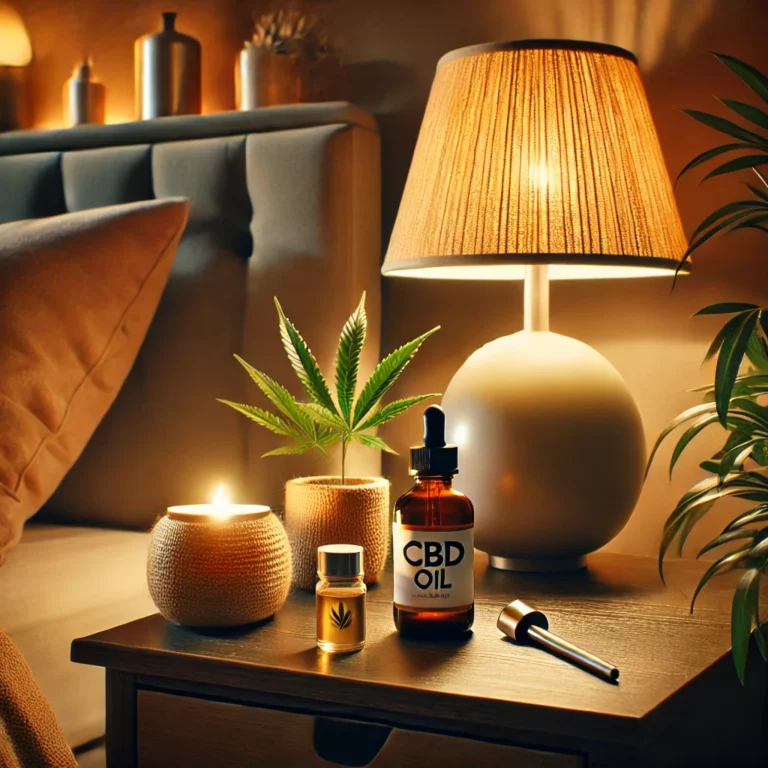Have you ever spent the night tossing and turning, staring at the ceiling as the hours tick away, wondering if you can use CBD for sleep?
Sleep issues are incredibly common. I’ve been there myself, wondering if there’s a natural way to drift off without relying on prescription pills. That’s when I stumbled upon CBD—the non-psychoactive compound from the cannabis plant. But does it actually work? Let’s dive into the science and see if CBD can help you get better sleep.

Sleep isn’t just about feeling rested. It’s the foundation of physical and mental health. Chronic sleep deprivation has been linked to a host of problems, including:
Weakened immune system
Memory and concentration issues
Increased risk of heart disease
Higher likelihood of anxiety and depression
Weight gain
Poor physical performance
Getting enough restorative sleep is essential for your body to repair itself, regulate hormones, and keep your brain functioning at its best. Yet, according to the CDC, about one-third of adults in the U.S. report not getting enough sleep regularly.
So, how does CBD fit into this? CBD interacts with the endocannabinoid system (ECS), which plays a role in regulating sleep, mood, and overall homeostasis. Research suggests that CBD may:
Reduce anxiety: Anxiety is a common culprit behind sleepless nights. Studies, like one published in The Permanente Journal (2019), found that CBD reduced anxiety in 79% of participants within the first month.
Regulate sleep cycles: CBD may help manage the sleep-wake cycle, encouraging deeper, more restful sleep.
Address pain: Chronic pain often disrupts sleep. Research indicates CBD’s anti-inflammatory properties can alleviate discomfort, making it easier to rest.

A growing body of research supports CBD’s potential for improving sleep:
A 2019 study published in Frontiers in Pharmacology found that CBD improved sleep in patients with insomnia by modulating cortisol levels—a stress hormone that often spikes at night.
Another study from Medicine (2020) concluded that CBD may enhance sleep quality in individuals with chronic pain.
Preliminary evidence from a study in Sleep Disorders and Therapy (2021) suggests that CBD may improve REM sleep behavior disorder in patients with Parkinson’s disease.
Not getting enough sleep doesn’t just leave you feeling groggy—it can snowball into bigger issues. Insomnia often leads to:
Increased cortisol levels, which can make falling asleep even harder.
Reduced productivity and decision-making ability.
Higher risks of chronic illnesses like diabetes and hypertension.
The good news? Breaking this cycle might be as simple as incorporating CBD into your nightly routine.

There’s no one-size-fits-all answer for using CBD, but here’s what I’ve learned:
Start small: Begin with a low dose (5-10 mg) and gradually increase until you find what works.
Pick the right method: CBD comes in various forms—tinctures, capsules, gummies, and even vape pens. Each affects the body differently.
Time it right: Take CBD 30 minutes to an hour before bed for the best results.
Here’s a handy chart that breaks down the different consumption methods and how they impact sleep:
| Method | Onset Time | Duration | Best For |
|---|---|---|---|
| Sublingual Tinctures | 15-30 minutes | 4-6 hours | Fast relief, precise dosing |
| Edibles (Gummies) | 1-2 hours | 6-8 hours | Long-lasting effects, easy to use |
| Capsules | 1-2 hours | 6-8 hours | Consistent dosing |
| Vaping | 5-15 minutes | 2-3 hours | Immediate relief for acute stress/anxiety |
Before jumping on the CBD train, it’s essential to talk to your doctor, especially if you’re taking other medications. While CBD is generally well-tolerated, it can interact with certain drugs or cause mild side effects like dry mouth or drowsiness.
When I started using CBD, I noticed subtle but meaningful changes. Falling asleep became easier, and I stayed asleep longer without waking up groggy. My favorite method? A few drops of a full-spectrum CBD tincture under the tongue before bed.

The science is promising, but everyone’s body is different. If you’re struggling with sleep, CBD might be worth a try. Combine it with healthy sleep habits like sticking to a schedule, creating a calming bedtime routine, and reducing screen time before bed. Who knows? CBD might just be the missing piece in your quest for quality sleep.
The Permanente Journal: Clinical studies on CBD and sleep
Frontiers in Pharmacology: CBD and cortisol modulation
Medicine: CBD’s effects on chronic pain and sleep
Sleep Disorders and Therapy: CBD’s impact on REM sleep disorders
Join our community of cannabis enthusiasts and terpene explorers! Get exclusive insights, in-depth guides, and the latest discoveries. No spam—just pure, aromatic knowledge delivered straight to your inbox.
Subscribe now and elevate your cannabis wisdom!